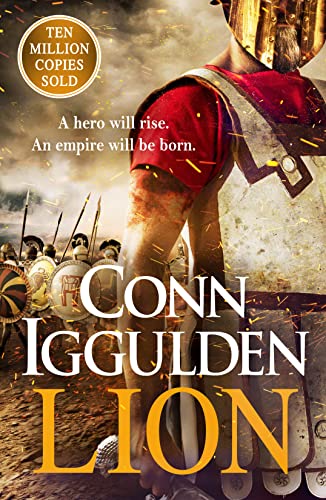Lion
In his notes at the end of the book Iggulden writes, ‘The lack of information for key years between the Persian Wars and the conflict with Sparta is a great shame.’ I have to disagree with him. In the hands of a master storyteller, those missing years can be brought to life, seamlessly weaving imagination in and out of what is gleaned from the available historical evidence.
Lion, although told mainly through the eyes of a young Pericles, is the story of Cimon, ‘one of the greatest strategos of Athens, the lion of a new generation.’ Pericles comes of age, under the tutelage of the man who brought about the end of Xerxes. From the finding of the bones of Theseus on Scyros, through the destruction of the Persian fleet on the Eurymedon River, to the final action against King Hesiodos of Thasos, which helped sow the seeds for a future war, Iggulden tells a believable tale wonderfully, in a style which is easy and enjoyable to read. Pericles is a well-structured character with many flaws. The thread of the complex relationship between himself and Attikos, frequently changing between enmity, camaraderie and duty, endures throughout the novel, with many twists and turns.
One thing grates: at one point Attikos says to Pericles, ‘I knew you was a good man.’ Attikos’s character has a great arc, and using this modern grammatical error feels incongruous in context.
Tiny pieces of Greek history are cleverly woven into dialogue and prose, both informing and entertaining the reader without lecturing. An apparent volte-face by Pericles towards the end is intriguing, and bodes well for the next book in the series. This book should please Iggulden’s fans and, I hope, introduce new readers to his well-told stories from Ancient Greece.










